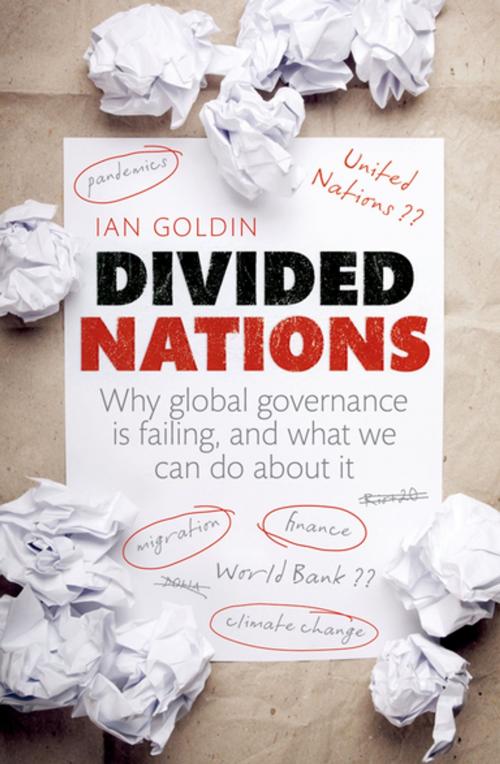Divided Nations: Why global governance is failing, and what we can do about it
Why global governance is failing, and what we can do about it
Nonfiction, Social & Cultural Studies, Political Science, International, International Relations, Business & Finance| Author: | Ian Goldin | ISBN: | 9780191652677 |
| Publisher: | OUP Oxford | Publication: | February 21, 2013 |
| Imprint: | OUP Oxford | Language: | English |
| Author: | Ian Goldin |
| ISBN: | 9780191652677 |
| Publisher: | OUP Oxford |
| Publication: | February 21, 2013 |
| Imprint: | OUP Oxford |
| Language: | English |
With rapid globalization, the world is more deeply interconnected than ever before. While this has its advantages, it also brings with it systemic risks that are only just being identified and understood. Rapid urbanization, together with technological leaps, such as the Internet, mean that we are now physically and virtually closer than ever in humanity's history. We face a number of international challenges - climate change, finance, pandemics, cyber security, and migration - which spill over national boundaries. It is becoming increasingly apparent that the UN, the IMF, the World Bank - bodies created in a very different world, more than 60 years ago - are inadequate for the task of managing such risk in the 21st century. Ian Goldin explores whether the answer is to reform the existing structures, or to consider a new and radical approach. By setting out the nature of the problems and the various approaches to global governance, Goldin highlights the challenges that we are to overcome and considers a road map for the future.
With rapid globalization, the world is more deeply interconnected than ever before. While this has its advantages, it also brings with it systemic risks that are only just being identified and understood. Rapid urbanization, together with technological leaps, such as the Internet, mean that we are now physically and virtually closer than ever in humanity's history. We face a number of international challenges - climate change, finance, pandemics, cyber security, and migration - which spill over national boundaries. It is becoming increasingly apparent that the UN, the IMF, the World Bank - bodies created in a very different world, more than 60 years ago - are inadequate for the task of managing such risk in the 21st century. Ian Goldin explores whether the answer is to reform the existing structures, or to consider a new and radical approach. By setting out the nature of the problems and the various approaches to global governance, Goldin highlights the challenges that we are to overcome and considers a road map for the future.















